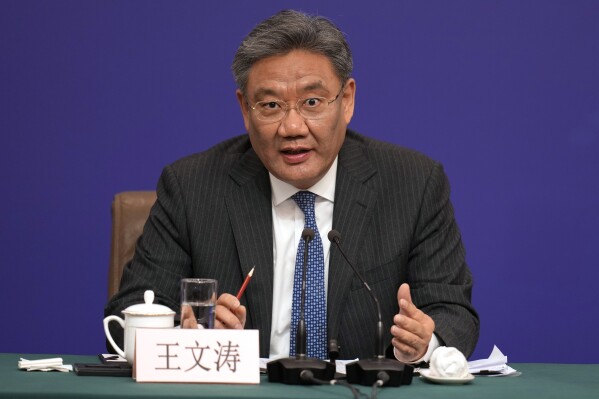China bans exports to US of gallium, germanium, antimony in response to chip sanctions

BANGKOK (AP) — China announced Tuesday it is banning exports to the United States of gallium, germanium, antimony and other key high-tech materials with potential military applications.
The Chinese Commerce Ministry announced the move after the Washington expanded its list of Chinese companies subject to export controls on computer chip-making equipment, software and high-bandwidth memory chips. Such chips are needed for advanced applications.
The ratcheting up of trade restrictions comes at a time when President-elect Donald Trump has been threatening to sharply raise tariffs on imports from China and other countries, potentially adding to simmering tensions over trade and technology.
China said in July 2023 it would require exporters to apply for licenses to send to the U.S. the strategically important materials such as gallium and germanium. In August, the Chinese Commerce Ministry said it would restrict exports of antimony, which is used in a wide range of products from batteries to weapons.
China is the biggest global source of gallium and germanium, which are produced in small amounts but are needed to make computer chips for mobile phones, cars and other products, as well as solar panels and military technology.
China’s Commerce Ministry protested and said it would act to protect China’s “rights and interests” after the U.S. side announced it was adding 140 companies to a so-called “entity list” subject to strict export controls. Nearly all are based in China, though some are Chinese-owned businesses in Japan, South Korea and Singapore.
Both governments said their respective export controls were needed for “national security.” In hitting back at the latest move by Washington to slow China’s progress in developing advanced technology with potential military applications, China is tightening controls announced in July 2023.
China’s government has been frustrated by U.S. curbs on access to advanced processor chips and other technology on security grounds but was cautious in retaliating, possibly to avoid disrupting China’s fledgling developers of chips, artificial intelligence and other technology.
Based in Bangkok, Kurtenbach is the AP’s business editor for Asia, helping to improve and expand our coverage of regional economies, climate change and the transition toward carbon-free energy. She has been covering economic, social, environmental and political trends in China, Japan and Southeast Asia throughout her career.